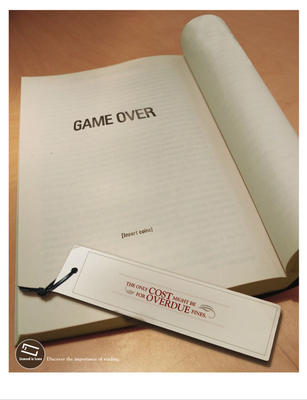(A citation from an essay 'What is Man?' by Mark Twain.)
A conversation between an Old Man (O.M) and a Young Man (Y.M)
Y.M. What is your opinion regarding Free Will?
O.M. That there is no such thing. Did the man possess it who gave the old woman his last shilling and trudged home in the storm?
Y.M. He had the choice between succoring the old woman and leaving her to suffer. Isn't it so?
O.M. Yes, there was a choice to be made, between bodily comfort on the one hand and the comfort of the spirit on the other. The body made a strong appeal, of course--the body would be quite sure to do that; the spirit made a counter appeal. A choice had to be made between the two appeals, and was made. Who or what determined that choice?
Y.M. Any one but you would say that the man determined it, and that in doing it he exercised Free Will.
O.M. We are constantly assured that every man is endowed with Free Will, and that he can and must exercise it where he is offered a choice between good conduct and less-good conduct. Yet we clearly saw that in that man's case he really had no Free Will: his temperament, his training, and the daily influences which had molded him and made him what he was, COMPELLED him to rescue the old woman and thus save HIMSELF--save himself from spiritual pain, from unendurable wretchedness. He did not make the choice, it was made FOR him by forces which he could not control. Free Will has always existed in WORDS, but it stops there, I think--stops short of FACT. I would not use those words--Free Will--but others.
Y.M. What others?
O.M. Free Choice.
Y.M. What is the difference?
O.M. The one implies untrammeled power to ACT as you please, the other implies nothing beyond a mere MENTAL PROCESS: the critical ability to determine which of two things is nearest right and just.
Y.M. Make the difference clear, please.
O.M. The mind can freely SELECT, CHOOSE, POINT OUT the right and just one--its function stops there. It can go no further in the matter. It has no authority to say that the right one shall be acted upon and the wrong one discarded. That authority is in other hands.
Y.M. The man's?
O.M. In the machine which stands for him. In his born disposition and the character which has been built around it by training and environment.
Y.M. It will act upon the right one of the two?
O.M. It will do as it pleases in the matter. George Washington's machine would act upon the right one; Pizarro would act upon the wrong one.
Y.M. Then as I understand it a bad man's mental machinery calmly and judicially points out which of two things is right and just--
O.M. Yes, and his MORAL machinery will freely act upon the other or the other, according to its make, and be quite indifferent to the MIND'S feeling concerning the matter--that is, WOULD be, if the mind had any feelings; which it hasn't. It is merely a thermometer: it registers the heat and the cold, and cares not a farthing about either.
Y.M. Then we must not claim that if a man KNOWS which of two things is right he is absolutely BOUND to do that thing?
O.M. His temperament and training will decide what he shall do, and he will do it; he cannot help himself, he has no authority over the mater. Wasn't it right for David to go out and slay Goliath?
Y.M. Yes.
O.M. Then it would have been equally RIGHT for any one else to do it?
Y.M. Certainly.
O.M. Then it would have been RIGHT for a born coward to attempt it?
Y.M. It would--yes.
O.M. You know that no born coward ever would have attempted it, don't you?
Y.M. Yes.
O.M. You know that a born coward's make and temperament would be an absolute and insurmountable bar to his ever essaying such a thing, don't you?
Y.M. Yes, I know it.
O.M. He clearly perceives that it would be RIGHT to try it?
Y.M. Yes.
O.M. His mind has Free Choice in determining that it would be RIGHT to try it?
Y.M. Yes.
O.M. Then if by reason of his inborn cowardice he simply can NOT essay it, what becomes of his Free Will? Where is his Free Will? Why claim that he has Free Will when the plain facts show that he hasn't? Why content that because he and David SEE the right alike, both must ACT alike? Why impose the same laws upon goat and lion?
Y.M. There is really no such thing as Free Will?
O.M. It is what I think. There is WILL. But it has nothing to do with INTELLECTUAL PERCEPTIONS OF RIGHT AND WRONG, and is not under their command. David's temperament and training had Will, and it was a compulsory force; David had to obey its decrees, he had no choice. The coward's temperament and training possess Will, and IT is compulsory; it commands him to avoid danger, and he obeys, he has no choice. But neither the Davids nor the cowards possess Free Will--will that may do the right or do the wrong, as their MENTAL verdict shall decide.












